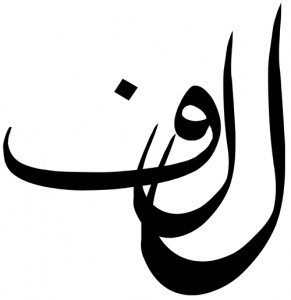The importance of rediscovering the Urdu short-story writer.
By Ayesha Jalal

“This letter comes to you from your Pakistani nephew whom you do not know, nor does anyone else in your land of seven freedoms,” Saadat Hasan Manto wrote in the first of a series of factitious letters to Uncle Sam. It was the height of the Cold War. Pakistan was about to sign a military pact with the United States. And Manto was irked to see his newly-adopted country substitute British colonialism with the uncertain virtues of American imperialism.
In his youth, he imagined driving the British out of India with homemade bombs. He once started a rumor that the British had sold the Taj Mahal to the Americans, who were sending special equipment to Agra to remove the monument to New York. Within a matter of hours, his hometown, Amritsar, was abuzz with chatter about the sale of the Taj Mahal. With his imaginative canard, Manto gave vent to his anti-colonialism while at the same time deftly planting the idea of Britain’s declining clout as the dominant global power in the minds of subjugated Indians.
The leading Urdu short-story writer of the 20th century, Manto witnessed the psychological trauma of Partition in 1947 at close quarters. “The trees in Lahore, the famed city of gardens,” Manto wrote, “wore the look of naked children. Refugees had stripped off the branches to keep warm in winter and feed their hunger. The buildings appeared to be in mourning, their bereaved inhabitants might laugh, play and go to work occasionally, but there was a palpable sense of emptiness.” His sensitive portrayal of the plight of uprooted humanity on the move in his fictional and nonfictional accounts of Partition is unsurpassed in quality. Both the colonial and the post-colonial states charged him with obscenity and conservative social circles condemned him for daring to write about prostitution and sexuality.
Manto enthusiasts hail him as a genius and a rebel who defied conventions. Alcoholism killed Saadat Hasan prematurely but Manto lives on. His works spanning two decades provide telling insights into human nature. Much has been written about him and his life from a literary perspective and several of his short stories are available in English and other languages. However there is a great deal still unknown about Manto, the writer, the individual, and his times. With 2012-2013 marking his birth centenary year, this is an appropriate moment to discover and disseminate Manto to a larger audience.
My personal discovery was unavoidable. I called him Manto Abajan since my childhood. I was born a year before he passed away. He was my father’s maternal uncle and married to my mother’s elder sister, Safia. My widowed aunt lived with her mother and three daughters in the same Lakshmi Mansion block in Lahore as us. I grew up with Manto’s conspicuously absent presence in our joint family and was intrigued by his short stories, several of which I knew before I had learnt to read. The dramatic ending of his classic Toba Tek Singh fascinated me as a child and made me want to know more about 1947. I sensed then that my bond with Manto Abajan transcended the family relationship. My granduncle’s literary talents had spotlighted the consequences of Partition on ordinary people. As a doctoral student of history at the University of Cambridge, I chose to work on the causes of India’s Partition and the creation of Pakistan. Though I asked different questions, I was keenly interested in unearthing the historical evidence on what led to the colossal human tragedy captured so poignantly in Manto’s stories.
The more I read of Manto, the more I wanted to write about him one day. When my sister-in-law mentioned her father’s letters to his mother, my ears pricked up. I was soon helping her organize Manto’s papers consisting of letters from relatives, friends and admirers, handwritten manuscripts, and a collection of photographs. I knew there was a book here on Manto.
The opportunity to write one arose a few years later when I was invited to give the Lawrence Stone lectures for 2011 by the Davis Center at Princeton. Manto’s archive has allowed me to connect the micro history of an individual and a family with the macro history of communities and states at the time of Partition. I have tried to adorn the historian’s craft by striving for a new historical methodology that imaginatively connects fictional and historical narratives. Manto has been the subject of excellent literary commentary, mostly in Urdu. My book is not about the literary merits of Manto’s corpus, though his stories are woven into parts of the historical narrative. Unlike my earlier works on Partition, Manto’s personal life and work are intermeshed with the momentous events of 1947 so that the pathos of his life merges imperceptibly with the pity of Partition.
____________________________________________________________________________
Jalal is a professor of history at Tufts University, a member of Newsweek Pakistan’s advisory board, and the author of several books, including The Sole Spokesman and Partisans of Allah. From Newsweek Pakistan’s March 1 & 8, 2013, issue.

